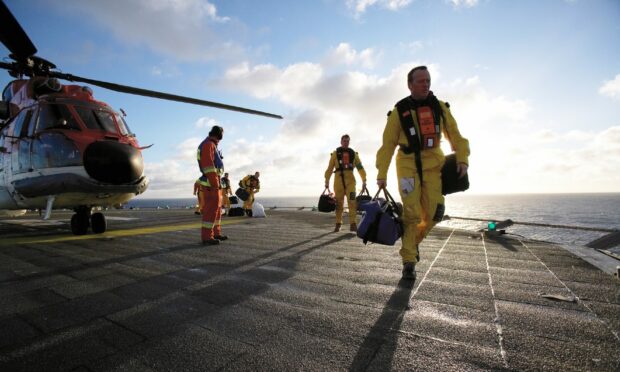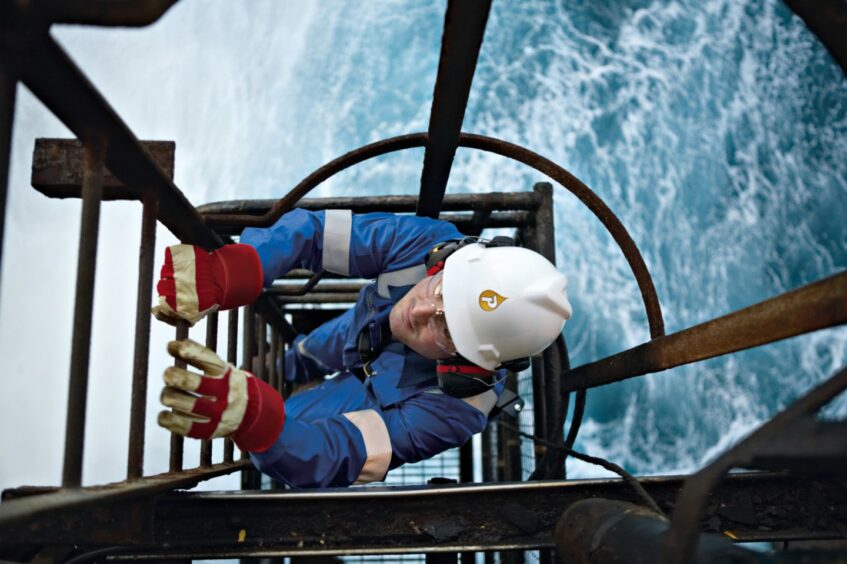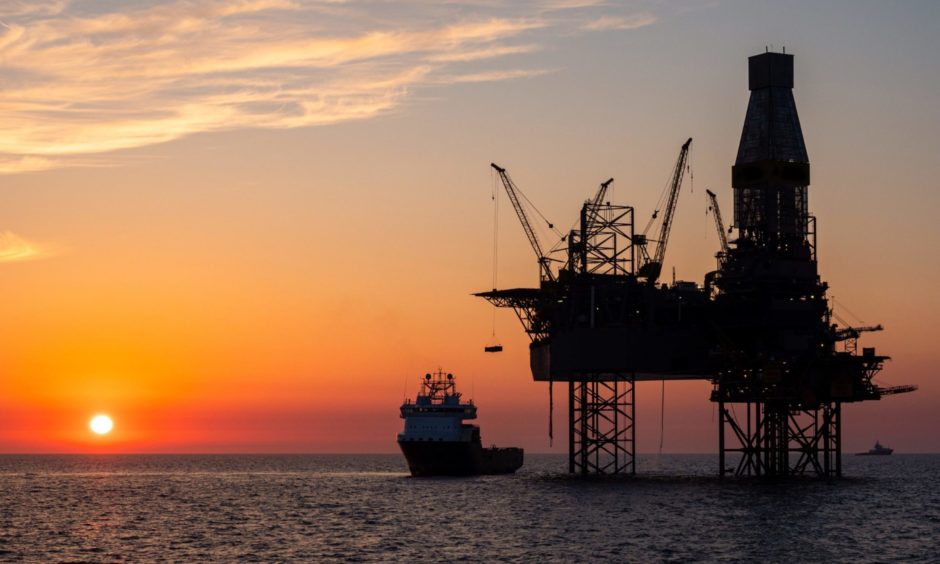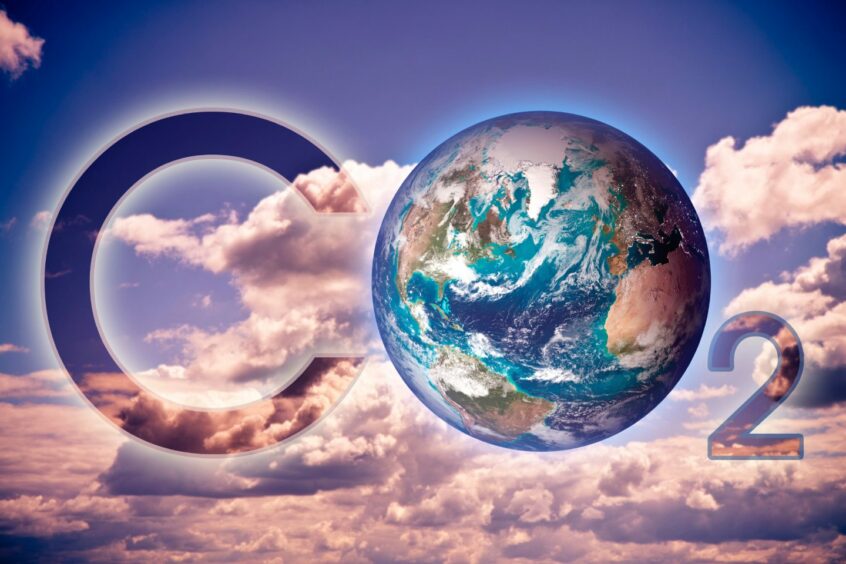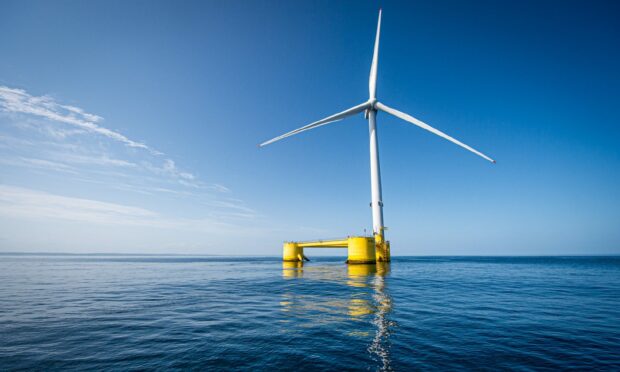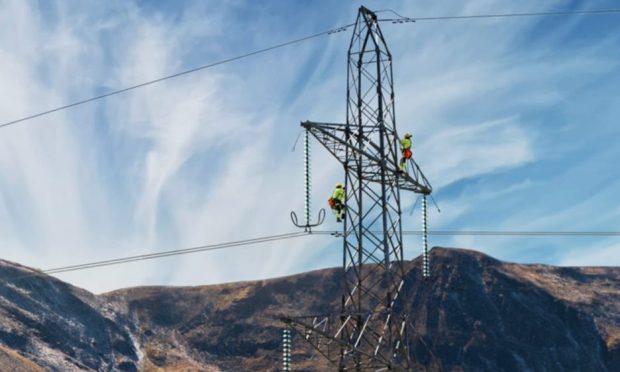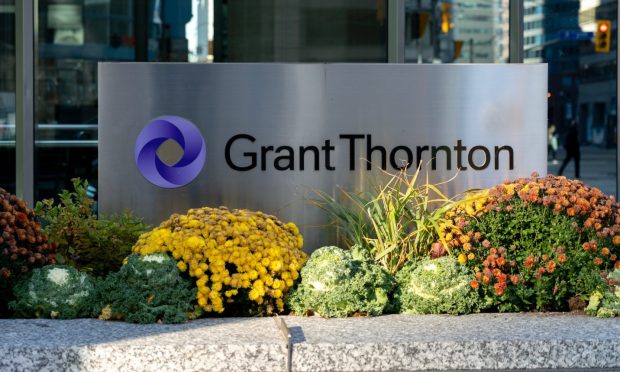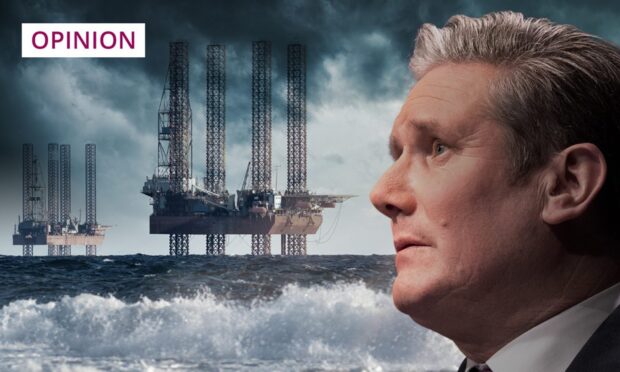Rich countries must end oil and gas production by 2034 to keep the world on track for the Paris Agreement climate change target and give poorer nations longer to replace their income from fossil fuel production, a new report says.
Manchester University and Canada-headquartered think-tank the International Institute for Sustainable Development (IISD) are publishing their study today.
It says the world’s poorest countries will require significant financial support to transition their economies and should have until 2050 to end fossil fuel production.
But richer nations including the UK need to halt oil and gas activities within 12 years, it claims.
Rocketing oil and gas prices only serve to strengthen the case we make in our report.”
Kevin Anderson, professor of energy and climate change, Manchester University.
North Sea body Offshore Energies UK (OEUK), previously Oil and Gas UK, says any premature end to domestic production will threaten a well-managed energy transition.
The Manchester University-IISD report – Phaseout Pathways for Fossil Fuel Production – is authored by two climate change scientists.
Professor Kevin Anderson is the university’s professor of energy and climate change, and also a researcher at the multi-partner Tyndall Centre for Climate Change Research.
Dan Calverley is an independent researcher boasting a PhD in energy and climate change.
The pair say they have developed a schedule for phasing out oil and gas production that meets international carbon-reduction commitments “and does so in a fair way”.
They also warn there is no room for any nation to increase production, with all having to make significant cuts this decade.
The richest, producing more than one-third of the world’s oil and gas, must cut output by 74% by 2030, while the poorest – supplying just one-ninth of global demand – must cut back by 14%, the report says.
Two worlds of oil and gas
Oil nations in the “richest” category include the US, UK, Norway, Canada, Australia and the United Arab Emirates. The “poorest” include Iraq, Libya, Angola and South Sudan.
Some poorer nations are so reliant on fossil fuel revenues that rapidly removing this income may threaten their political stability, the report says.
Countries like South Sudan, Congo-Brazzaville, and Gabon, despite being small producers, have little economic revenue apart from oil and gas production.
Prof Anderson, speaking ahead of the report’s publication, said: “There are huge differences in the ability of countries to end oil and gas production, while maintaining vibrant economies and delivering a just transition for their citizens.
“We have developed a schedule for phasing out oil and gas production that, with sufficient support for developing countries, meets our very challenging climate commitments and does so in a fair way.”
He added: “The research was completed prior to Russia’s invasion of Ukraine.
“Of course, our first thoughts are with the Ukrainian people and indeed with all of those caught up in the war.
“But the rocketing oil and gas prices only serve to strengthen the case we make in our report.
“Now is exactly the time we should be planning for a renewable 21st Century, rather than reliving the oil-based 20th.”
Last month a flagship report from the Intergovernmental Panel on Climate Change warned that failing to limit global warming to 1.5°C will have devastating impacts.
UN Secretary General Antonio Guterres said it would also be a “damning indictment of failed climate leadership”.
Experts say that at current levels of emissions, the world will exceed 1.5°C as early as 2030 to 2035.
Mr Calverley said: “There is very little room for manoeuvre if we want to limit warming to 1.5°C.
“Although this schedule gives poorer countries longer to phase out oil and gas production, they will be hit hard by the loss of income.
“An equitable transition will require substantial levels of financial assistance for poorer producers, so they can meet their development needs while they switch to low-carbon economies and deal with growing climate impacts.”
North Sea industry response
OEUK energy policy manager Will Webster said: “Any premature halting of domestic production would not reduce UK consumption or global emissions.
“But it would jeopardise the UK’s plan for a well-managed transition as set out in the North Sea Transition Deal – which is already enabling us to help reduce emissions and create pathways to decarbonise the UK’s other energy-intense industries, including through carbon capture and storage .”
